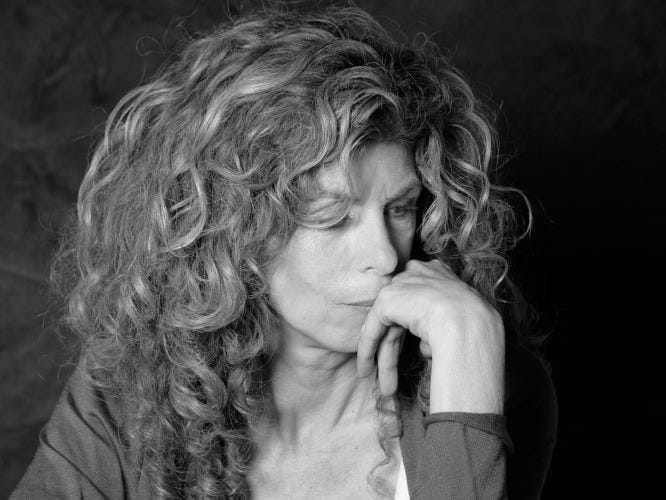The boulder once dust, will be dust again,
but today, so filled with its own heaviness,
it can't hear the grunts of the men who push and roll it
to the mouth of the tomb,
and it can't yet conceive how else it might be moved.Marie Howe’s New and Selected has enough new work at the start of it to count as an entire collection. They are awesome and interwoven in a way that feels like a wonderful continuation of a voice that has spoken heavily about loss and love, understanding and transcendence. This piece does all of that artfully and with a measured simplicity.
The poem opens with a biblical allusion attached to a boulder. This immediate contradiction of connotation — the immovable mass of a boulder and the soft impermanence of flesh — sets a heavy tone.
That tone continues as the boulder is personified and burdened with its weight. Its very nature and existence burden it in a very achingly human way. Who has time to think about our inevitable end (and the meaninglessness it gifts to our daily troubles) when we are caught in the whirlwind? Not this boulder.
“It can’t hear the grunts of the men who push it and roll it” is an interesting line, considering the context. In personifying the boulder, Howe is divinizing the men. They become agents of fate working behind the scenes to nudge the boulder towards purpose. For the reader, this serves as a reflection on how easy it is to feel as if we are not going anywhere but are, in fact, just blind to the movements.
“to the mouth of the tomb” continues the Judeo-Christian trend in reference, which any fan of Howe will not find surprising. The physical placement of the line, pushed off to the side, serves a couple of purposes. For one, it allows the poem to maintain its form in that each line ends on a punctuation mark and feels like a natural break. Our eyes seek out that continuation and have to search for it in this dangling half-line. The meter of that half-line — two anapests consisting of an unstressed-unstressed-stressed syllable pattern— give it a musicality and mass of its own that reflects the revealed purpose of the stone. This stone is may not feel particularly great, but it has an important role to play in a great thing. It is both commonplace and of profound importance. This is that reflection and transcendence that weaves through Howe’s work.
The final line makes note of the blindness that we suffer from in the before (note the title), that can only be appreciated in the after. Where we find ourselves is often somewhere we could not have even pictured in the first place. We are, generally, horrible at predicting where our lives will take us. In retrospect it all makes so much sense, but while we are living it we are often blind to the turns. This poem is a reminder than meaning comes later, after the unexpected has happened.




I love this. Thanks for curating. I think that is what I am reading these for.
Thanks, Mike, for sharing a bit of Marie Howe's brilliance.